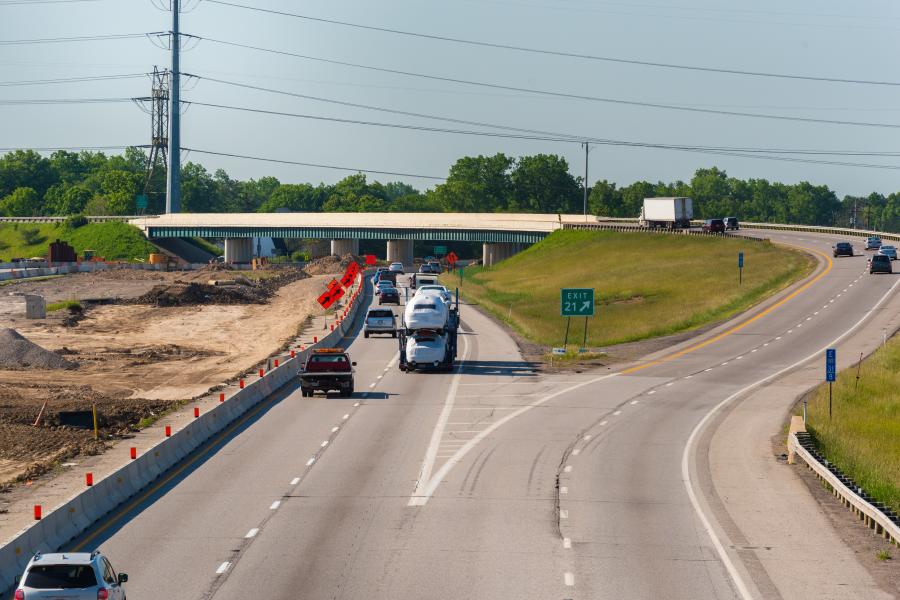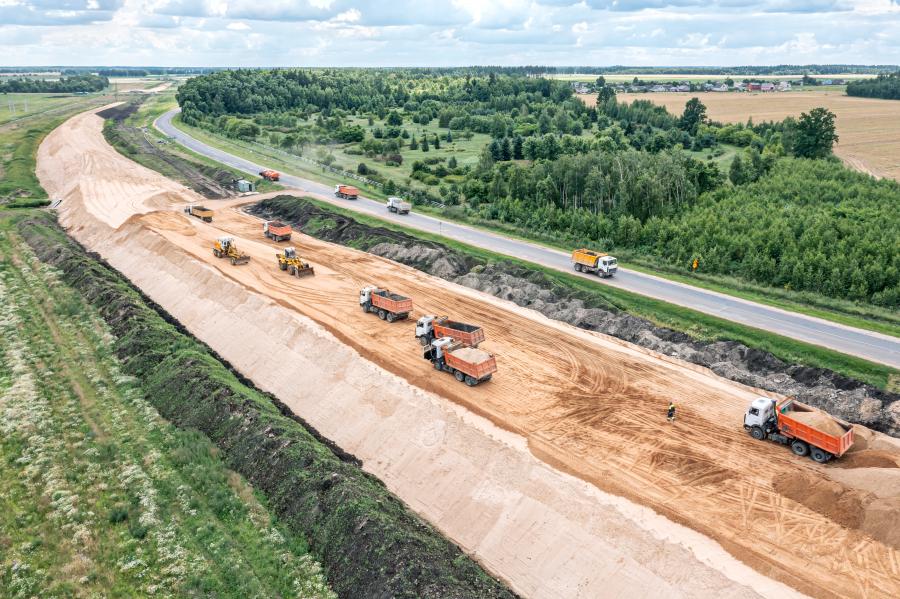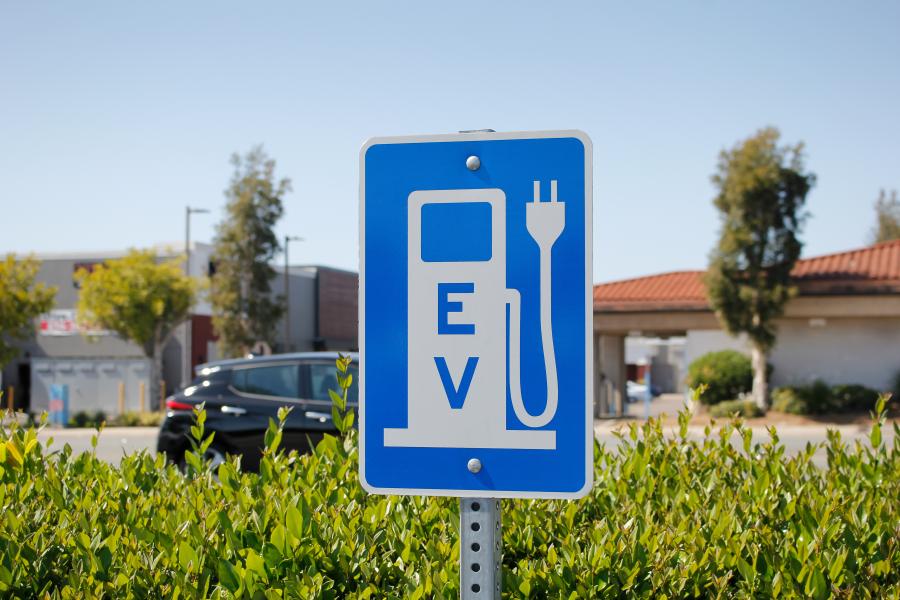Adobe Stock photo
DOT Transportation Secretary Pete Buttigieg said the proposed performance measure will offer states a clear and consistent framework to track carbon pollution.
The construction industry has declared its support of 22 states challenging the FHWA's greenhouse gas (GHG) performance rules, which went into effect this past December. The AGC and ARTBA believe the federal agency lacks the authority to impose performance measures and that FHWA has underestimated the administrative costs resulting from the mandate. The courts will decide this month.
The two associations, filing briefs in federal courts in February, joined several construction industry groups who consider the mandate burdensome and untenable.
The rule charges state DOTs with setting and reporting on statewide emission reduction targets at two- and four-year intervals.
As ARTBA explained, states must set initial targets by spring, with subsequent targets due by Oct. 1, 2026.
"Those states failing to meet these goals must submit updated plans outlining actions to achieve them," ARTBA told member contractors.
Attorneys general from 22 states sued the agency in Kentucky Federal District Court in December. Both ARTBA and AGC maintain Congress intentionally excluded GHG-related provisions from the IIJA.
The jobs bill's path through Congress shows both houses deliberately removed greenhouse gas provisions that had appeared in earlier versions. In commenting on the FHWA rule back in 2022, ARTBA argued states should make their own decisions on GHG measurements.
The association reported that court decisions are expected at the end of March.
Challenging Diversion
"Every state has its climate challenges, and ought to have the data, funding and flexibility it needs to meet those challenges head on," said Pete Buttigieg, transportation secretary. "This new performance measure will provide states with a clear and consistent framework to track carbon pollution."
He said the measure also would offer states the flexibility to set their own climate targets. The fed would help states meet this measure with $27 billion-plus in federal funding through President Biden's Investing in America agenda. AGC believes the Biden administration lacks the statutory authority to issue this rule because Congress repeatedly debated and rejected the effort.

Adobe Stock photo
The association told members it disagrees with FHWA's stand that there are no explicit penalties set in the rule. The rule reads that states that fail to meet quotas must "provide data-supported explanations for not achieving significant progress," reiterated AGC.
States also will have to explain to FHWA how they will reduce carbon dioxide emissions. That, stated AGC, could mean investing in buses, Amtrak trains and electric vehicle charging stations at the expense of road and bridge projects.
"AGC has extensively covered this issue for the last few years and has led coalition efforts to block the rule from taking effect," members were told
In 2023, the association successfully tackled Supreme Court cases advocating for the construction industry. AGC urged members to voice their opposition to this mandate directly to the president and their congressional representatives.
"Tell [them] to block FHWA's GHG rule that will force states to spend their highway funds … to pay for non-construction initiatives."
In their lawsuits, the 22 states said only Congress is authorized to advance GHG rules. States said the actions of the president and FHWA violate the law. They accused Biden of "unconstitutionally ramming" a radical climate agenda.
The lawsuit states that this agenda is being forced through administrative agencies that lack congressional authority to implement such actions.
"We will not stand by while this administration attempts to circumvent the legislative process," said Daniel Cameron, ex-Kentucky AG.
According to a Transportation Topics article, the consortium of states sued the DOT, FHWA and officials over a series of actions, including:
- Biden for signing executive orders … making lowering carbon emissions a "national priority."
- FHWA Administrator Shailen Bhatt for carrying out prescribed FHWA duties.
- DOT Secretary Pete Buttigieg for establishing/implementing USDOT's National Highway Performance Program.
The states believe DOT and FHWA tied 2022 proposed state GHG rules to reduce emissions to Biden's target of net-zero emissions, economywide, by 2050.
Looking at past fed filings, states claim there is no National Highway Performance Program law requiring the agencies to adopt a GHG measure. They believe federal law encourages state DOTs "to consider a variety of ways to incorporate environmental considerations under their existing authority."
According to ttnews.com, the states referred to multiple deadlines and emission requirements they must now achieve. This, on top of a new GHG performance standard added to FHWA, measures evaluating how states perform in the National Highway System. For instance, states must demonstrate declining emissions thresholds that phase out new internal combustion engine passenger cars by 2035. They also must demonstrate plans for ending unabated coal and oil power plants by 2040.
"Most Americans still drive internal combustion engine passenger cars, and … are not ready for the wholesale switch to electric vehicles," the states claimed. "Coal still provides almost 20 percent of electricity … and provides over half of the electricity in eight states, including several of the plaintiff states."
Stressing that states with fewer urban centers have a harder time reducing emissions, the complainants said many of these reduction moves are not practical.

Adobe Stock photo
"Congestion pricing, road pricing, ramp metering, increased coordination with transit and non-motorized improvements, paying fees to scrap low-mileage heavy-duty vehicles are options more conducive to metropolitan areas, not rural ones," the coalition argued.
They also maintain rural drivers travel long distances "often in heavy-duty vehicles required for business or agriculture or because they need to be able to maneuver effectively in inclement weather and through altitude changes."
The complainants believe the distance and terrain in rural states also make non-motorized and electric options impractical.
The lawsuit claims states also will face economic implications and financial burdens.
The fed estimated that the final emissions rule will cost up to $12.7 million for the first 10 years of implementation, according to ttnews.com.
Raúl Labrador, Idaho AG, said his state is pursuing more than 700 NHS improvement projects.
"The federal government demanding a reduction in vehicle miles traveled is ridiculous," he said. "States simply cannot be forced to implement the policy whims of a federal government and the Constitution is clear about this."
Another objection, from Montana AG Austin Knudsen, said the one-size-fits-all approach might work for the Washington, D.C., but not in his state. Knudsen believes the emissions reg will "disproportionately" harm states with more rural areas.
Ashley Moody, Florida AG, noted states are required to set arbitrary targets for reduced CO2 emissions, to track progress and report to the fed goal progress.
"This rule forces states to spend an inordinate amount of time, resources and money with no clear guidance for what success looks like," she said.
Throwing a Monkey Wrench
In early February, two congressmen introduced AGC-supported legislation that would repeal the GHG rulemaking.
Kevin Cramer of North Dakota and Rick Crawford of Arkansas initiated a resolution of disapproval to "illustrate Congress' objection to this federal overreach."
They consider "most galling" the Biden administration's implementation of the rule despite having no statutory authority to do so.
"This is the heavy hand of the federal government run amok," said Crawford, chairman of the House highways and transit subcommittee. "The absence of a prohibition is not a license, and yet the Biden administration pushed this illegal and unfeasible regulation anyway," said Cramer. "New York and North Dakota have very different transportation systems, needs and capabilities, but … they're effectively treated the same."
He added, "a subway stop at a cattle ranch is silly and unserious, and so is the idea of widespread EV use in North Dakota."
Cramer noted nearly half the Senate co-sponsored this resolution from the onset, showing strong push for the rule's defeat. Cramer is ranking member of the Senate environment and public works subcommittee on transportation and infrastructure.

Adobe Stock photo
Congress considered and rejected including a GHG performance measure requirement during IIJA negotiations, noted Sam Graves of Missouri. Graves, who chairs the House transportation and infrastructure committee, said the Biden administration needs to implement the law that was written.
Shelly Capito of West Virginia claimed Biden is "blatantly" neglecting the letter of a bipartisan law he signed himself. She said the rule hamstrings states' transportation planning priorities and jeopardizes critical investments, jobs and economic growth across the country.
"When we negotiated the bipartisan IIJA, we specifically left out the authority FHWA is attempting to exercise."
Cramer and Crawford said Congress has not provided DOT with any statutory authority to implement this proposal.
"Additionally, the agency's proposal is not workable, as illustrated by comments from a majority of state DOTs and AGs."
In penning their objections to the rules, construction industry associations said they support congressional efforts to halt the GHG regulation. The coalition believes regulatory overreach outside the bounds of the IIJA has the potential to limit improvements to our infrastructure.
Congress ultimately excluded from the 2021 law because the provision lacked sufficient congressional support.
"While a previous administration considered a similar GHG performance rule, the agency later determined that the rule exceeded its statutory authority … and was not required by law."
To be clear, they noted, the statutory language around performance measures has not changed since the 2012 enactment of MAP-21.
"We believe FHWA lacks the statutory authority to create a greenhouse gas performance measure, and therefore, support any and all congressional efforts to block this rule's implementation."
Besides AGC and ARTBA, that industry group included the ACPA, AHUA, AED, AEM, CRSI, NAPA, NPCA and the American Trucking Associations, among many others. CEG
Today's top stories























